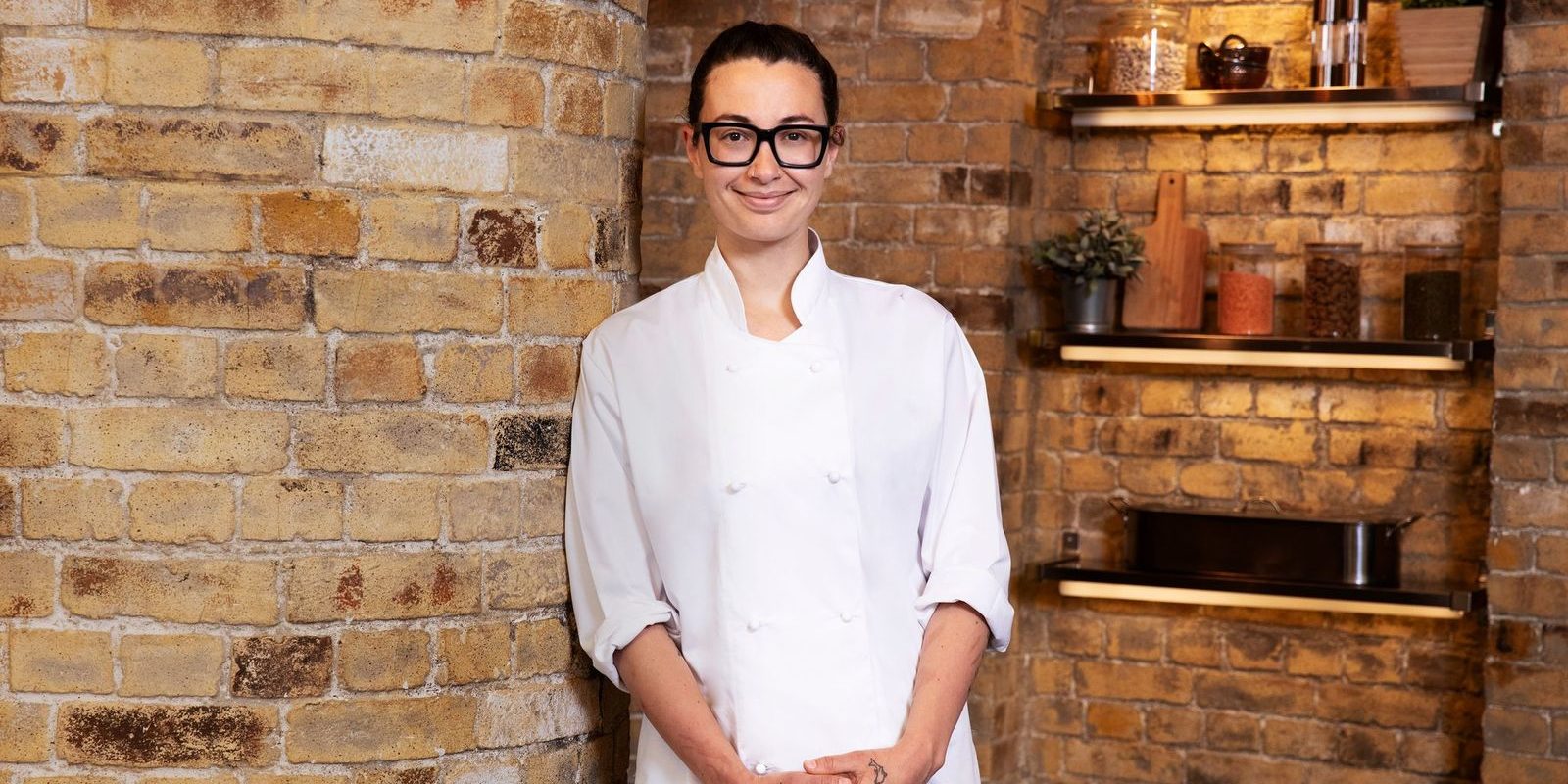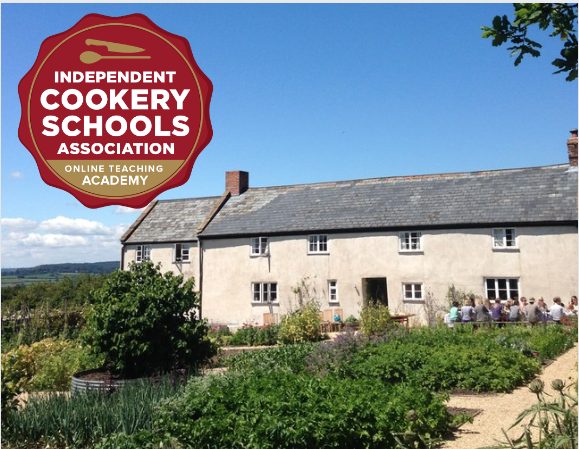ICSA Cookery Schools are selected and ‘Accredited’ for their consistent quality teaching standards and cookery facilities.
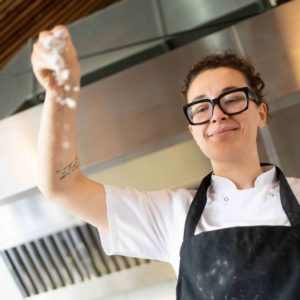 Providing reassurance to cooks and students of all levels, gaining transferrable life skills, culinary knowledge and a memorable cookery experience.
Providing reassurance to cooks and students of all levels, gaining transferrable life skills, culinary knowledge and a memorable cookery experience.
Chiara Tomasoni is Chef Tutor and Sous Chef at River Cottage HQ and Cookery School in Devon. Recently assessed by our independent ICSA accreditors and achieved the highest high scores for her teaching standards and their facilities, achieving a coveted ‘Centre of Excellence’ Award. Since then, Chiara has gone on to wow judges at this year’s BBC Masterchef – The Professionals. We caught up with Chiara to ask her about her culinary journey to date and her experiences of Masterchef.
MEET CHEF LECTURER: CHIARA TOMASONI
Read our interview below & click the link in the footer, to join her on a Dinner Experience at River Cottage.
WIN A COOKERY EXPERIENCE FOR TWO. Sign up to our Free Cook’s Club Below.
QUICK FIRE Q&A WITH CHEF CHIARA:
What made you want to become a chef?
Growing up in Italy, food has always been at the heart of every occasion, gathering and celebration, but also a central aspect of everyday routines. I started cooking with my father at a young age and I quickly found myself rolling out pasta for tortellini before I could even reach the countertop. As I spent more and more time in the kitchen I started realising how happy it made me to see people bond, gather and have good times around food that I had cooked, so making tasty things for a living was a natural, instinctive choice.
Tell us a little bit about your career journey to becoming a chef tutor
Nothing about my career journey to becoming a chef is traditional. I actually trained as a journalist! I spent my University years working as a waitress, putting cooking aside a bit, but making food and environmental issues the main focus of the documentaries, interviews and pieces I produced. I did lots of travelling around the world, and everywhere I visited I always made it my priority to sit down with the locals and cook together, their way, which re-ignited my love for making and sharing delicious food.
During my last year of studies I felt the need to start cooking for people again and I set up a private chef business from my tiny flat in Sussex, where I cooked for parties and private functions. That took off quickly and I was lucky enough to be able to make it my full-time job and move into commercial premises. Running a small business at 19 was certainly the steepest of learning curves, but after a couple of years I felt ready to broaden my horizons and work in a ‘proper’ kitchen within a team of like-minded chefs – which is how I ended up as Sous Chef at River Cottage.
Tell us about working at Hugh Fearnley-Whittingstall’s World renowned River Cottage in Devon
I’ve worked at River Cottage HQ for almost three years now. As much as time seems to have flown by, working on a farm is a grounding experience that has made me connect deeply to our land, our environment and the amazing produce that we are blessed with here.
We teach courses that cover everything from foraging and gardening to artisanal skills like preserving, cooking over fire, fermenting and butchering – no one day at the office is ever the same as the next!
The variety of courses and dining events we offer means that each and every menu and course is truly unique and never repeated again, especially as we closely follow the pace of not just the four seasons, but micro-seasons within those. As chefs here we have to adapt, think outside the box and improvise every day.
We’re based on an 80-acre working farm and we grow and rear much of food that gets enjoyed by our guests ourselves, so our courses often feature tours of the Kitchen Garden where we harvest the ingredients we will then cook with.
What can students expect from your style of teaching and their overall learning experience?
As we predominantly host groups of just ten guests, each course is new, different and tailored to the crowd I’m teaching that day. What all courses do have in common though, is an emphasis on connecting to our land and our awesome local producers, with a focus on recipes that leave our guests nourished, inspired and feeling confident and creative in the kitchen. Hugh’s passions and books also inspire many of the courses, some he jointly hosts, others he just sometimes pops in to say hi!
What kind of cookery courses, cuisine or techniques inspire you the most?
I’m very passionate about fermentation and the many delicious ways in which it can develop flavours, unlock nutrients and preserve food to make it last longer – from miso to kimchi and sauerkraut, there’s always a stack of jars of ferments on my cookery school bench.
I also love spending time in nature – it’s where I feel most inspired and at peace, so foraging for wild foods features on my courses all year round.
How do you bring your own unique style to your courses?
I like to share personal experiences with my guests – things like inspiring or funny moments in my career, but also times where things went wrong and a recipe failed for example. I find this helps move away from the strict teacher-pupil rhetoric and steer towards a more friendly, welcoming, inclusive and judgement-free atmosphere.
What focuses and practices do you follow in the kitchen and pass on to your students/guests?
I teach all my guests to cook and eat more S.L.O.W. – Sustainable, Local, Organic and Wild.
I also emphasise the importance of minimising waste – we are lucky that our produce comes directly from our farm or from our neighbouring producers, so it’s never wrapped in any nasty packaging and it’s always seasonal, organic and grown with utmost respect for the soil and the environment. To do these wonderful ingredients as much justice as possible, it is paramount to us to use every last bit of it – from making crispy mackerel skeletons, to stocks from vegetable offcuts and meat bones and delicious dishes with underused ingredients such as hogget, mutton and wild plants.
What is your top sustainable tip for any domestic kitchen?
On a given week, keep a log of everything that ends up in your food waste bin. At the end of the week, go through the list and ask yourself how that wastage could have been avoided. You can narrow it down to the top three most wasted ingredients in your household and work towards cutting down on that wastage by learning to preserve and cook produce that may be slightly past-its best, storing your food better and buying more consciously. Also- don’t over buy and use all of an ingredient! if you roast a chicken, make stock with the bones. If you chop a broccoli, eat the stalk too!
What three ingredients do you always have on hand?
Miso, lemon and a loaf of good sourdough.
Which kitchen utensil/gadget could you not do without?
A Vitamix blender!
What one essential kitchen tip/subject would you share as a ‘need to know’ for any level of aspiring kitchen gourmand?
Having a good sharp knife will do half the work for you!
ICSA: What does it mean to you to be a member
It is an honour to be part of an organisation that champions great food, great ethics and excellent teaching and it keeps us motivated to continue to progress and better ourselves, for us and for our guests.
What other professional/accrediting bodies do you respect/aspire to?
We are proud members of the Soil Association and we’re supporters of Surfers Against Sewage, a cause that is quite close to me – being a waste warrior and kite-surfer myself!
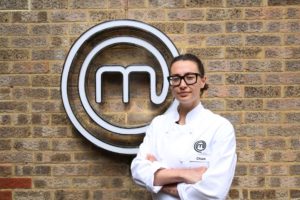 MasterChef. Tell us about your journey to MasterChef: The Professionals
MasterChef. Tell us about your journey to MasterChef: The Professionals
When did it start?
I applied last winter really early in the morning one day, and the filming started in May so there was a lot of anticipation!
What have you learned about yourself? I have learned that the fact that I haven’t got a traditional cooking background is a strength rather than a weakness, as my cooking and my creativity aren’t bound by the rigid rules of traditional French cuisine.
What has been your biggest challenge?
The Critics Challenge, with such tight time limits and so much at stake, was definitely the toughest, but nothing will ever compare to the pre-Skills Test anxiety!
What has been your biggest success
I would say it was the Chef’s Table round. My pea ice cream sandwich dessert was a winner and cooking in such an incredible kitchen, for chefs that I have looked up to for years, was a true privilege.
How will you apply your learnings to your teachings/kitchen career?
I have learned so much about what I am like in high-pressure situations, and I have also picked up a huge number of little tips and ideas from fellow competitors and amazing chefs I met throughout the MasterChef journey.
What tips can you give any other budding chefs wanting to apply to Masterchef?
My biggest tip is to just go for it, it can be so daunting at first to put yourself out there in such a bold way. Don’t compromise on your beliefs and cooking ethos, be yourself and be brave!
Finally…describe your unique cookery school experience to someone who may never have been?
Expect to get immersed in the cooking process as well as the provenance of the food you’re cooking and learn to appreciate the journey of the ingredients from our organic farm to your plate.
Anyone coming on our courses and dining events will leave feeling thoroughly spoiled, inspired, equipped with new knowledge to put into practice and, of course, well-fed!
Thank you for sharing your insights with us. Your dedication to sustainable cooking and commitment to culinary excellence are truly inspiring.
BOOK A DINNER EXPERIENCE WITH CHIARA TOMASONI AT RIVER COTTAGE HERE
Read more about River Cottage Cookery School Here
WIN A Cookery School Experience for TWO.
Sign up to our ICSA Cook’s Club Below.
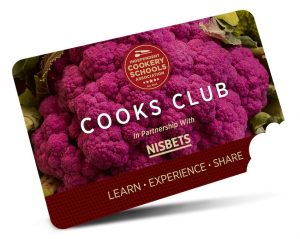
Join our ICSA COOKS CLUB:
Learn more about ICSA, our members and receive regular cookery tips from the professionals, along-side some of the industry discounts chef mentions, available from our friends and partners.

